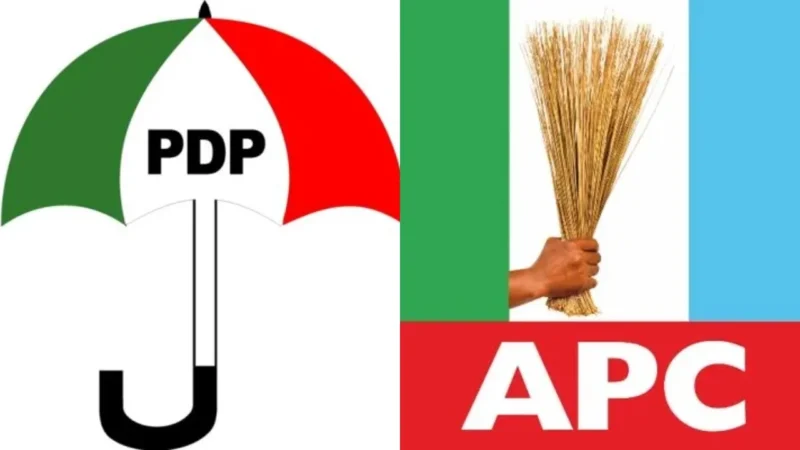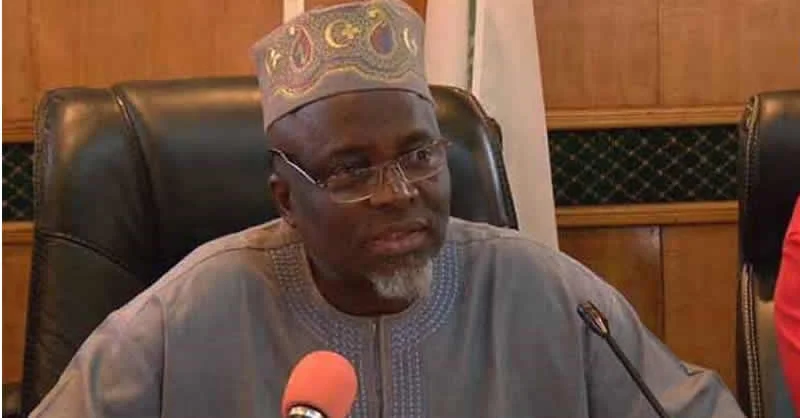Fuel queues resurface in Abuja, Ogun, others as minister begs for calm
Filling stations in Abuja and neighbouring states of Niger, Nasarawa, and Kogi, were shut on Friday as oil marketers expressed worry over the planned nationwide protest.
Retail outlets, including those operated by the Nigerian National Petroleum Company Limited in Kubwa, Salbas Oil, Eterna, and Gegu Oil, among others located on the Kubwa-Zuba expressway, stopped dispensing fuel.
The same scene was also witnessed inside Abuja and parts of Niger and Nasarawa states.
Oil marketers told our correspondent that filling stations in Lokoja, the Kogi State capital, were also shut.
The development led to fuel queues resurfacing in outlets dispensing fuel like AYM Shafa in the Dei-Dei end of the Kubwa-Zuba expressway, Abuja, and the NNPC in Zuba, Niger State.
Also, several filling stations in some parts of Lagos State were closed on Friday, creating fears of impending fuel scarcity.
Our correspondents, who went around, noticed that most filling stations were not dispensing, while the few that attended to customers sold at N800 per litre.
Although some oil marketers said the closure of some retail outlets on Friday was due to the unavailability of fuel, others attributed it to apprehension over the planned nationwide protest.
Long queues in Ogun
In Ogun State, the situation at filling stations has reached a crisis point as motorists face long queues amid looming fuel scarcity.
Our correspondent visited the Magboro and Ibafo areas along the Lagos-Ibadan Expressway, where a chaotic scene unfolded as vehicles including motorcycles, cars, and commercial buses, lined up for petrol.
At Quest Filling Station in Magboro, the sight was alarming as the queue snaked for over a hundred meters, with motorists struggling for their turn to purchase fuel.
Of the three petrol pumps available, only one was operational, exacerbating the delay for those waiting.
Saheed, a commercial bus driver en route to Ibadan, expressed his frustration after spending over an hour in the line.
“I have been here for more than one hour. I didn’t know I would meet such a long queue. Although one of our drivers mentioned a smaller queue earlier, I didn’t anticipate this. My passengers are already complaining, but there’s nothing I can do. I can’t use my urine to drive them to Ibadan. We just have to wait for our turn,” he lamented.
The situation at NIPCO Filling Station in Magboro was also alarming. Diesel was priced at N1,200 per litre, while petrol cost N675 per litre. Out of the five available petrol pumps, four were operational.
Meanwhile, the Minister of State for Petroleum Resources (Oil), Heineken Lokpobiri, has called for calm.
He also urged Nigerians to avoid participating in the proposed protest.
Speaking on the closure of retail outlets in parts of the country, the Secretary of the Independent Petroleum Marketers Association of Nigeria, Abuja-Suleja, Mohammed Shuaibu, said, “Some of them may not have products to dispense due to unavailability.
“However, many marketers are worried about the proposed protest and are already taking measures to prevent losses. Closing shops is one of such measures and this, of course, is going to cause queues in such locations because the number of stations selling petrol would be reduced.
“I am in Lokoja now, and many stations are not dispensing petrol. This is not a good thing because we only recovered from the fuel queues recently in major cities across the country, though that situation was due to a drop in supply from NNPC.”
Commenting further, the minister in a statement issued in Abuja on Friday by his media aide, Nneamaka Okafor, pleaded with Nigerians to shelve the planned protest.
He stated, “Senator Heineken Lokpobiri, the Minister of State for Petroleum Resources, is calling on Nigerians, especially the youth in the Niger Delta, to remain calm and avoid participating in the proposed nationwide protest.
“We understand the frustrations and challenges faced by many Nigerians, but it is essential to approach these issues constructively.
“President Bola Tinubu is dedicated to revitalizing our economy and bringing renewed hope through well-thought-out policies and programmes.”
Lokpobiri underscored the importance of unity and patience as the FG works to address the nation’s diverse issues.
“Now more than ever, we need to stand together and support the initiatives being put in place. Our collective efforts will pave the way for a more prosperous Nigeria.”
Acknowledging the role of protests in a democracy, the minister warned against those who might exploit the protest for malicious purposes.
“Certain groups are looking to use this protest to incite violence and crime. We must not let non-state actors disrupt our peace and stability,” he cautioned.
Lokpobiri also called for constructive engagement and dialogue over any action that could unsettle the nation, saying, “While protesting is your democratic right, consider the broader implications on our national stability and progress. Dialogue and collaboration are far more effective solutions.”
The minister reassured Nigerians of Tinubu’s commitment to their well-being, adding, “President Tinubu is a true democrat who listens to the people. He is already implementing measures to address our nation’s challenges.”
Lokpobiri urged the youth and all Nigerians to support the government’s efforts, saying, “Let us work together to achieve the progress we all desire. Avoid actions that could jeopardize our collective future.”
No queues at Kwara petrol stations
As fuel queues resurface in some states in the country, Saturday PUNCH reports that no queue was observed at petrol stations in Ilorin, the Kwara State capital.
It was also noted that petrol was sold between N600 and N800 per litre.
AP filling station at Murtala Mohammed road, a major commercial area in Ilorin, was selling at N620 per litre on Monday, Conoil, N650; MJK, N800, while MRS, located on Unity road, sold at N600 per litre.
Also, Shafa filling station sold at N700 per litre, Rain oil at Asa Dam road, and Lao selling at N70 per litre. Meanwhile, the Tigress at Odota sold at N750 per litre while Bovas sold at N670 per litre in all its stations located in various parts of the metropolis.
Reps begin probe of imported fuel, others
In another development, the House of Representatives said it had commenced a full-scale investigation into the crude oil supply chain and quality of petroleum products imported and refined in the country.
The Green Chamber of the National Assembly said the move was to ensure transparency and accountability, as well as the security of the nation’s petroleum sector.
The Chairman, House Committee on Petroleum Resources, Downstream, Ikenga Ugochinyere, disclosed this on Thursday at the opening of its 2024 Midstream and Downstream Retreat, held in Port Harcourt.
The retreat, jointly organised by the House Committee on Petroleum Resources Midstream and Downstream, is themed, ‘Enhancing Regulatory Frameworks, Promoting Transparency, and Fostering Sustainable Development in Nigeria’s Oil and Gas Sector’.
The lawmaker explained the retreat is aimed at providing strategic insights into the nation’s petroleum sector.
The petroleum sector, according to him, is the backbone of the nation’s economy, adding that it is the duty of the legislative arm of the government to ensure its transparency.
Ugochinyere disclosed that the House had mandated both committees of the petroleum resource to open an investigation into the crude oil supply chain, noting that it was important for the nation’s economic recovery.
He said, “The committee will undertake detailed laboratory investigation at all local refineries, marketers, importers, and regulatory agency labs like NMDPRA.
“We will visit various filling stations, depots, and tank farms to verify the quality of imported petroleum products and assess the testing capacity of all refineries.
“The collection of these samples will be four spacemen and will be transparently done with all the key stakeholders.
“Zonal interaction committees will be constituted in order to ensure smooth movement to all the zones of the country for the purpose of taking samples from the depots, tank farms, and refineries for immediate analysis.”
He added, “We urge all those to be invited to provide full cooperation and support by providing all necessary documents, facts, and insights that would aid our investigation.
“Our investigation will proceed in phases beginning with the examination of standards of petroleum products that are imported into the country and the crude oil supply chain.
“This investigation that the House has ordered is the main reason we are at this retreat to brainstorm on how to proceed, and this investigation is crucial for restoring trust and ensuring the security and quality of Nigeria’s petroleum sector in line with the renewed hope agenda of the President.
“We are committed to accountability and transparency and thoroughness, and that we will do throughout the process. The investigation aims to identify and resolve the issues plaguing Nigeria’s petroleum sector.
“Our interaction with stakeholders in the Midstream and Downstream sectors is crucial. It is through this interaction that we will gain a comprehensive understanding of the challenges faced by our industry and collaboratively decide ways to ensure growth and sustainability.
“We are going to address allegations concerning the alleged importation of substandard petroleum products, the alleged production of substandard petroleum products, the non-availability of crude oil to domestic refineries, and other critical issues.”
Meanwhile, the Speaker of the House of Representatives, Hon. Tajudeen Abbas, in his keynote address, said the retreat was germane as it provides the opportunity for continued conversation and dialogue initiative by the Green Chamber on strengthening and enhancing the regulatory framework of the oil and gas sector.
The lawmaker, who was represented by Hon. Sada Soli, representing Kaita/Jibia Federal Constituency at the National Assembly, said over the years, there have been debates over regulatory, transparency, sustainable, and development of the sector even after the passage and coming into force of the Petroleum Industry Act (PIA) in the 9th Assembly







